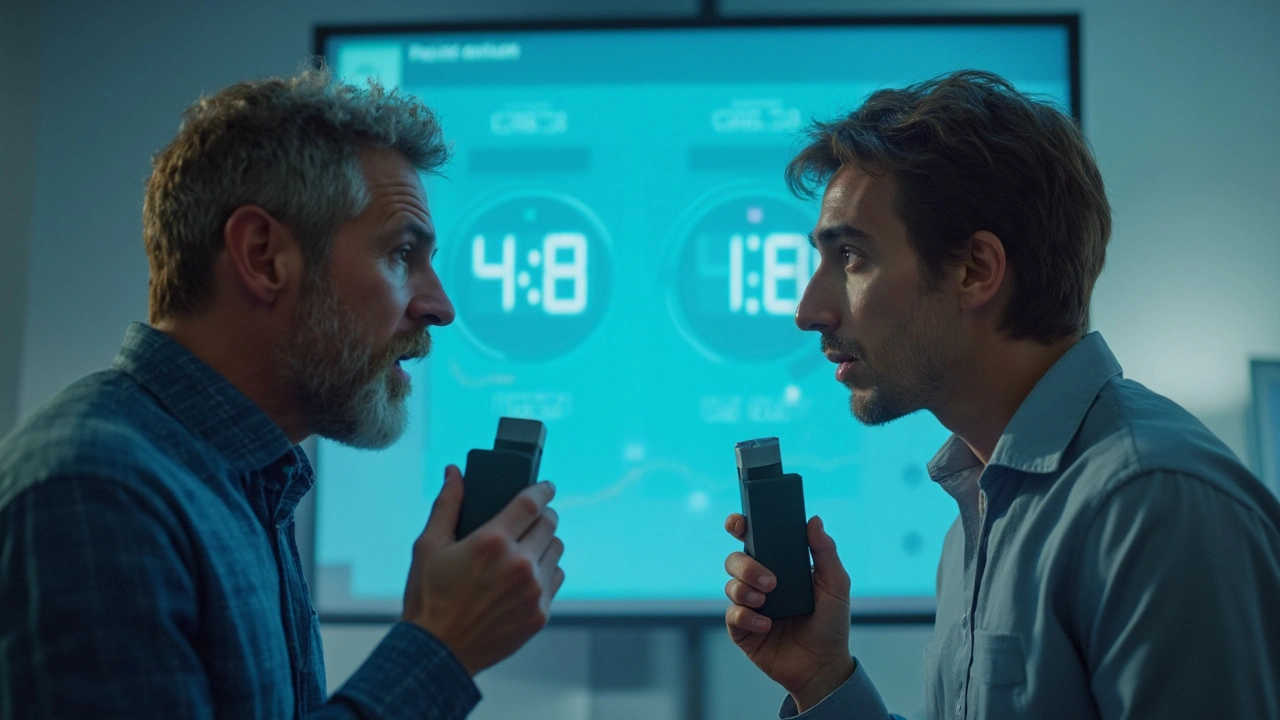Onset time — how fast will your medicine start working?
Onset time (or onset of action) is the time between when you take a drug and when you notice its effect. That’s the question most people ask: how long until I feel better? The answer depends on the medicine, how you take it, and your body. Knowing typical ranges helps you avoid panic and use drugs safely.
Common examples and what to expect
Here are some real-world ranges so you get a feel for timing:
- Albuterol (inhaler): about 5–15 minutes — fast relief for wheezing.
- Nitroglycerin (sublingual): 1–3 minutes — used for chest pain.
- Acetaminophen (oral): 20–60 minutes — common pain/fever reducer.
- Topical creams (pain or steroid): 15–60 minutes for local relief, but full anti-inflammatory effect can take days.
- Antibiotics (oral): symptom improvement may take 24–72 hours despite starting to work sooner.
- SSRIs (antidepressants like paroxetine): often 2–6 weeks for full mood effects — not immediate.
Those are typical windows, not guarantees. If something seems off — no effect or bad side effects — check with your pharmacist or clinician.
What changes onset time?
Route of administration matters most. IV gives near-immediate effect, inhaled and sublingual act fast, oral pills take longer because they must be absorbed through your gut. Topical drugs work at the skin but may take longer to reach deeper tissues. Long-acting or delayed-release pills are designed to start later and last longer.
Formulation and dose also matter. Liquids and chewables absorb faster than tablets. Higher dose can act sooner but raises the risk of side effects. Food can speed up or slow down absorption depending on the drug — some need an empty stomach, others need food to be absorbed properly.
Your body affects timing too. Age, weight, liver and kidney function, and other meds that speed up or slow metabolism change onset and duration. Smoking, alcohol, and even some herbal supplements can alter how fast a drug works.
Onset time is different from peak effect and duration. Onset is when you first notice change; peak is when the effect is strongest; duration is how long it lasts. For many drugs, you might feel something quickly but the full benefit comes later.
Practical tips: always read the patient leaflet or Rx information for expected onset and special instructions. If you need fast relief, ask whether a different route (e.g., inhaler vs pill) is appropriate. Don’t double-dose if you feel no effect right away — wait the recommended interval or call your provider. If a rescue medicine (like nitroglycerin or albuterol) doesn’t help as expected, seek emergency care.
Want specifics for a medicine you take? Ask your pharmacist the simple question: "When should I expect this to start working, and what should I do if it doesn’t?" That gives clear expectations and helps you use meds safely.

